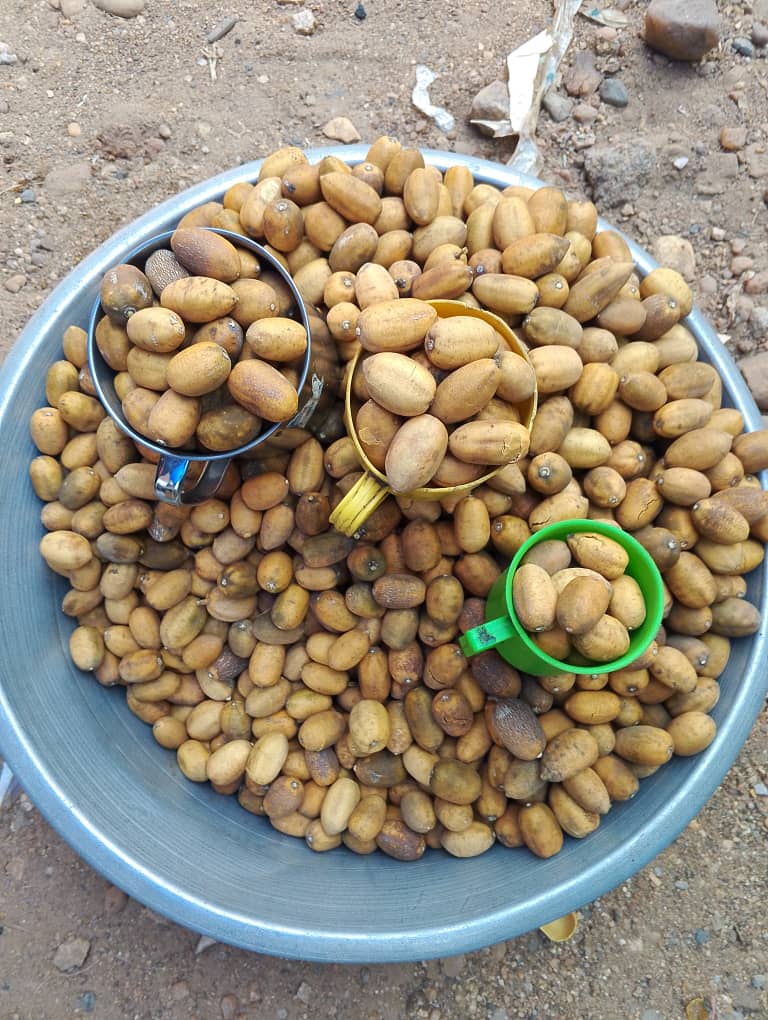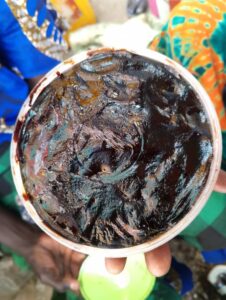The Significance of Lalob Fruit In South Sudan’s Traditional Customs

By Debora Akur Chol-south sudan
In the heart of South Sudan’s diverse cultural landscape, the lalob fruit, also known as “thau” by the Dinka and Nuer people, or the Baobab fruit, has emerged as a cornerstone of both tradition and sustenance for many communities.
The fruit, found in abundance across the country’s savannah regions, plays an essential role in the daily lives and customs of South Sudanese people, transcending its nutritional value to become deeply embedded in cultural practices.
The lalob fruit has been a staple of South Sudanese diets for centuries.

Its tangy pulp, rich in vitamin C and other nutrients, is often consumed fresh, or dried and powdered for use in local beverages, porridge, or added to soups, and the Nuer and Dinka local dish “walwal”.
In a country where food security remains a challenge, especially in rural areas, the resilience and versatility of the baobab fruit offer a valuable resource to the local population.
However, the importance of the lalob fruit goes far beyond its role as a food source.
In many South Sudanese communities, it holds deep cultural significance.
Traditionally, the fruit is used in various rites of passage, including birth and naming ceremonies.

It is believed to bring blessings to newborns, with families often placing pieces of the fruit under the child’s cradle for protection and prosperity.
The fruit is also used during significant life events such as weddings, where it symbolises fertility, strength, and longevity.
In some regions, the baobab tree itself is revered as sacred.
The large, striking trees are often seen as guardians of the land, with communities gathering around them for social and spiritual activities.
Some South Sudanese ethnic groups hold a deep respect for the tree’s ancient presence, viewing it as a source of wisdom and a symbol of the connection between the people and their ancestors.
In addition to its cultural uses, the fruit is tied to traditional medicine.
The leaves, bark, and seeds of the baobab are known for their therapeutic properties and are used in folk medicine to treat a range of ailments, from digestive issues to fevers and infections.
Elders in South Sudan often pass down knowledge of the medicinal uses of lalob fruit, ensuring its preservation and continued usage by future generations.
As South Sudan’s agricultural and cultural heritage faces modern challenges, there are growing efforts to preserve the traditions surrounding the lalob fruit.
Advocacy groups and local communities are working to protect baobab trees from deforestation and to ensure sustainable harvesting methods that allow the fruit to continue supporting both nutritional and cultural needs.
In a country defined by its resilience, the lalob fruit stands as a testament to the enduring importance of South Sudan’s traditional customs.
Its presence in South Sudanese life, whether in the kitchen, the medicine chest, or during community celebrations, remains a vital link between the past and the present, providing not only nourishment but also a sense of identity and continuity for the people of South Sudan.
categories
recent posts





